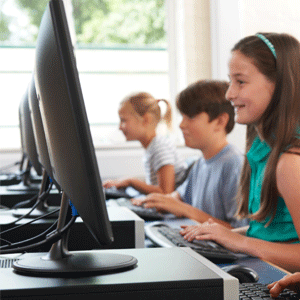
Computers do not noticeably improve pupils' academic results and can even hamper their performance, an OECD report said, that looked at the impact of technology in classrooms across the globe.
While almost three quarters of pupils in the countries surveyed used computers at schools, the report by the Organisation for Economic Cooperation and Development found technology had caused no noticeable improvement in results.
Mixed impact on student performance
Conversely, in high-achieving schools in parts of Asia, where smartphones and computers have become an integral part of people's everyday lives, technology was far less prevalent in the classrooms.
Read: Eyecare for computer screen users
In South Korea, students used computers for an average of nine minutes at school and in Hong Kong, only 11 minutes, just a fraction of the 58 minutes spent in Australia, 42 in Greece and 39 in Sweden.
"Where computers are used in the classroom, their impact on student performance is mixed at best," OECD's education director Andreas Schleicher said in a foreword to the report, the think-tank's first on the topic.
"Students who use computers very frequently at school do a lot worse in most learning outcomes, even after accounting for social background and student demographics."
The report measured the impact of technology use at school on international test results, such as the OECD's Pisa tests taken in dozens of countries around the world and other exams measuring digital skills.
Read: Electronic devices with 'safe' screens can help to prevent eye damage
It found that education systems which have invested heavily in information and communications technology have seen "no noticeable improvement" in results for reading, mathematics or science.
The OECD urged schools to work with teachers to turn technology into a more powerful tool in the classroom and develop more sophisticated software for experimentation and simulation, social media and games.
"The real contributions ICT can make to teaching and learning have yet to be fully realised and exploited," it concluded.
Read more:
Memory training helps kids with ADHD
Tablets may help autistic kids talk more
Structured play in kindergarten may improve grades
Image: Group of primary school children from iStock




 Publications
Publications
 Partners
Partners










